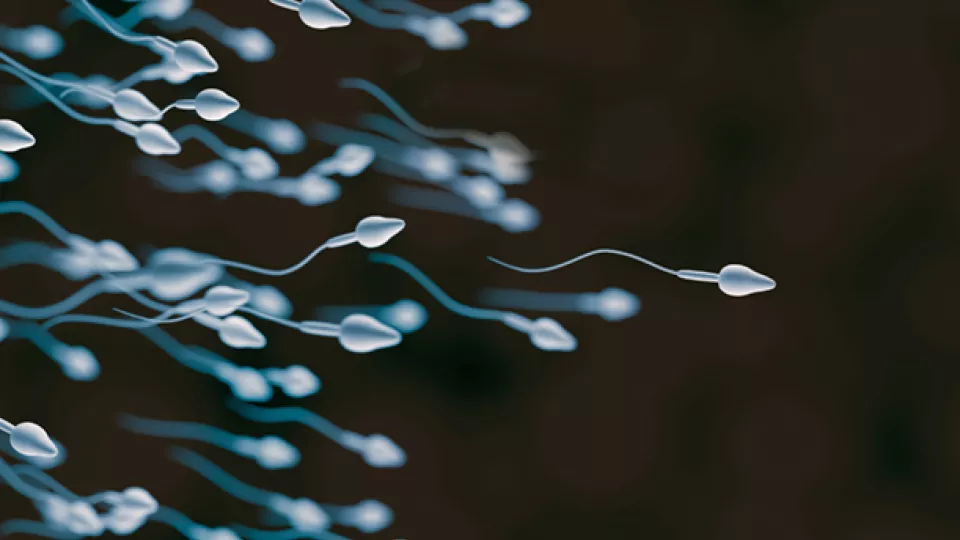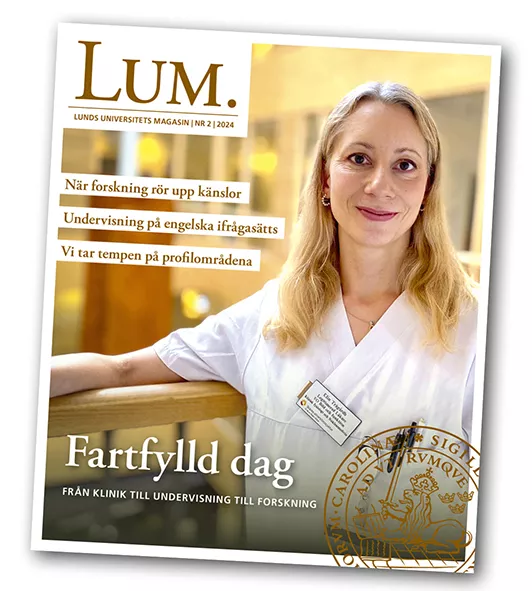Aleksander Giwercman, a consultant physician and professor of reproductive medicine, is on the board of ReproUnion and has worked in reproductive medicine since 1979. He was involved in bringing the breakthrough method of in vitro fertilisation to Sweden in the 1980s and also experienced the introduction of the microinjections invented in the early 1990s:
“With classic in vitro fertilisation, where fertilisation has to happen spontaneously between ovum and sperm in the test tube, we could not treat the couples for whom sperm quality was the issue. With the advent of microinjections, we were able to inject the sperm directly into the ovum, which made it possible to help many more couples to achieve a pregnancy.”
Yet the new technique also meant that interest in exploring the causes of poor sperm quality waned. The process was to be fast, with few patient examinations and rapid treatments. In recent years, however, researchers have started drawing attention to the causes behind a decline in sperm quality, with underlying diseases as one of the factors.
Men with infertility problems have lower levels of testosterone, which are linked to an increased risk of diseases such as diabetes. Low testosterone levels can also be related to a lower life expectancy.
“There are studies showing that sperm counts have dropped by as much as 50 per cent since the 1940s, although these studies have received some criticism. It is thought that lifestyle or environmental factors play a large part in determining sperm count and quality, and a lot of research is now being done in this field.”
The fact that women are getting older before deciding to start a family also affects fertility. The problems usually concern disruptions in ovulation, blocked fallopian tubes or endometriosis.
“It is positive that women now get an education and invest in their careers before having children. But from the point of view of procreation, fertility already starts to decline after the age of 30 and by 35 it goes rapidly downhill.”
Sometimes, no detectable defect is found in either partner. In 25 per cent of cases, infertility is simply unexplained.
“It becomes an existential crisis for a couple planning a family, when they don’t succeed in getting pregnant. For most people, the ability to reproduce is fundamental – they simply expect it to work. This makes the whole thing a little taboo and many people choose not to talk about their problems.”
For Aleksander Giwercman, it can sometimes be difficult not to have an explanation for a couple who are unable to have children, nor to be able to offer some kind of treatment besides in vitro fertilisation.
“However, my job is mainly positive. Around 65 per cent of those who come to the clinic become pregnant and I feel very privileged to be able to contribute to helping couples to have a family. Meeting the patients is what motivates me in my research work.”
ReproUnion consists of 14 research units in the Öresund region which collaborate on five major challenges within the field of reproduction. Among other things, Alexander Giwercman is researching the effects of cancer treatment on male fertility, but also how conditions such as diabetes, osteoporosis and cardiovascular diseases are connected to disruptions in the reproductive system. Low fertility rates are also linked to testicular cancer, which is why all men who apply to the clinic undergo screening for safety’s sake.
“Infertility is a global problem that we won’t solve in one go. The various projects within ReproUnion have now got an opportunity for extension, and we will see where they lead in both the short and the long term perspective”, concludes Aleksander Giwercman.




